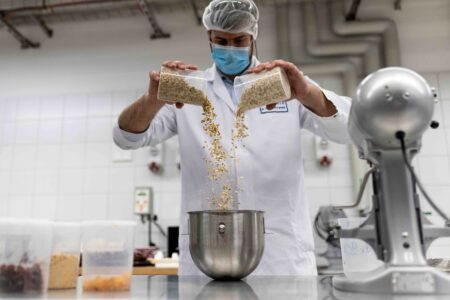Food and Drink Federation calls on government to ensure trade continuity with EU

The Food and Drink Federation (FDF) is urging UK government ministers to make further progress in securing continuity deals for EU preferential trade agreements.
An FDF report shows that food and drink exports have increased by 5.1% to £11.3bn in the first half (H1) of 2019 compared to the same period in 2018. Yet the rate of growth is lower than that seen in the first half 2018 of 5.7%.
As the trade organisation noted, to date, just 15 of more than 40 deals have been successfully concluded. This represents 43% of the UK’s food and drink exports to nations where there is an existing trade agreement – £650m of a total of £1.5bn in H1 2019.
Against this backdrop, a number of confectionery, ingredients and equipment manufacturing businesses within the sector have expressed concern regarding the continued uncertainty over future trading relations between the UK and the EU, which have yet to be resolved – including whether Britain will in fact finally leave the trading bloc at the end of this month.
Growth in H1 has been driven by a strong increase in the value of exports to non-EU countries (+9.8%). The year-on-year increase in value of non-EU exports is almost three times that of exports to EU countries.
Having seen growth of 10.7% in the first quarter of 2019 (Q1) driven by stockpiling in EU27 countries ahead of the April Brexit deadline, export growth fell in Q2. The subsequent slowdown in sales to the EU in Q2 is in part driven by the need for businesses to sell off these stockpiled goods.
The value of branded goods sold to the EU has declined (-1.6%) whereas exports to non-EU countries have risen by almost 10%. As a result, the share of both branded and non-branded food and drink sold to the EU has declined in H1 2019. This decline has been notable in the UK’s largest export market, Ireland, where the value of branded goods fell by 2.5% in H1.
Exports of all the UK’s top 10 food and drink products have increased in H1 2019, with the value of whisky, salmon, wine, gin, and pork exports all up more than 10% on the same period last year. Salmon, beef and gin have also all seen volume growth of more than 10%.
Ian Wright CBE, Chief Executive, Food and Drink Federation, has repeatedly warned that failing to maintain trade agreements within the food and drink sector would have a significant impact on the British economy.
He said: “Government must deliver on its promise to ensure there is no loss of access to any of these agreements after the UK leaves the EU. The failure to secure continuity agreements with these markets will place UK manufacturers at a competitive disadvantage to EU competitors. That will harm the interests of UK consumers.”
UK businesses currently benefit from more than 40 trade agreements with 76 countries as a member of the EU. Each of these are important for UK food and drink exporters and importers. Exports to these countries were worth £3.1bn in 2018, which represents 14% of total UK food and drink exports.



